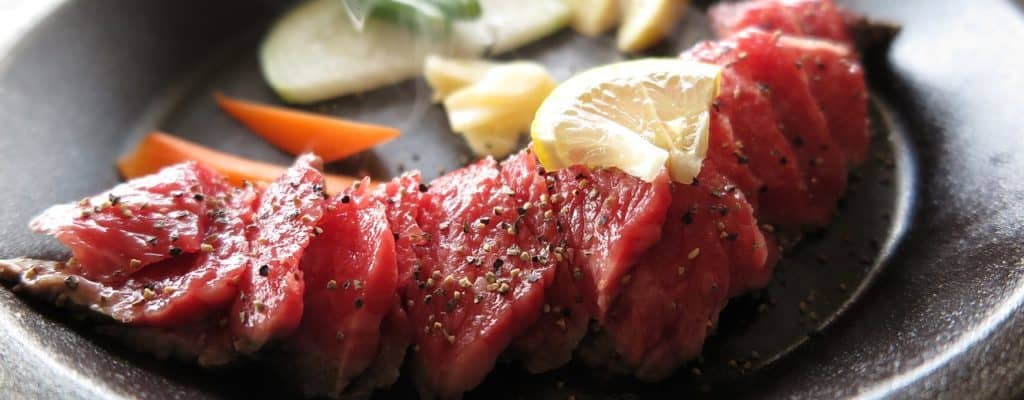Ways to determine an infants caloric needs

Learn how to determine your baby’s caloric needs, including the calories in breast milk and formula, to ensure your infant gets the right nutrition for healthy growth.

Young children need iron for healthy brain development. Iron helps your baby's body produce hemoglobin - it is very important in transporting oxygen to all cells in the body while making red blood cells healthy. If your baby doesn't have enough hemoglobin, he or she will develop anemia .
Depending on their age, children need different levels of iron:
Breastfed babies tend to get enough iron from their mothers until 4-6 months of age. Once your baby is six months old, you should add iron to your child's daily diet so that your baby does not have anemia because at this time, the nutritional content in breast milk is no longer as abundant as at first. During this time, nutritious foods such as pureed meats and nutritious cereals are often chosen by mothers to familiarize their babies. If breastmilk does not get enough iron, a baby should be given iron supplements as prescribed by a doctor. Babies who are fed with an iron-fortified formula do not need an iron supplement.
Infants 7-12 months old need 11 mg of iron per day;
Children 1-3 years old need 7 mg of iron per day. Children 4-8 years old need 10mg and children 9-13 years older need 8 mg per day;
Adolescent boys should get 11 mg of iron per day and adolescent girls should get 15 mg daily. (Adolescence is a time of growth and girls of this age need iron supplements quickly to replace what they lose every month at the start of menstruation);
Young athletes, who regularly engage in high-intensity exercise tend to lose a lot of iron and they may need more iron in their diet. Vegetarians also need iron supplements sometimes.
A diet full of nutrients but not too excess for children is always a matter of concern for parents. The following three great ways of eating will help mothers add iron to their babies' diet:
There are two types of iron: heme iron (red pigment) and non-heme iron. Parents should practice feeding babies foods rich in heme iron because their bodies easily absorb this iron. Some types of meat rich in red pigmented iron such as beef, lamb, chicken, pork, veal, animal liver ...;
You also need to include foods rich in non-heme iron in your baby's daily meals such as: whole grains, healthy breakfast cereals, dark green vegetables like broccoli and spinach, beans. green beans and beans, dried fruits such as apricots, nuts, eggs, legumes, including lentils and baked beans, soybeans and soy products;
In addition, mothers should combine iron-rich foods with a good source of vitamin C because it will help your baby absorb more iron. For example, feed peaches, oranges, kiwis or strawberries with iron-rich cereals or feed them meats in ketchup and add a pinch of pure red pepper.
Note: A diet high in iron can cause constipation for your child. Signs of constipation include bloating, bloody stools, or a baby having difficulty passing bowel movements.
If your baby is born premature , premature or when your baby does not eat foods that provide nutrients for the body, parents need to consult a specialist for advice on how to use iron pills. suitable for each case.
Iron is important in the development of a healthy body in children. Long-term iron deficiency reduces physical activity, reduces resistance and greatly affects the intellectual development of children, so parents need to understand the importance of iron to always pay attention to the regime. nutrition of the baby. Parents should pay attention to provide enough doses and a scientific diet to contribute to good health and overall development.
You can see more:
Tell mom how to supplement iron for children
How is iron supplemented for the baby?
Learn how to determine your baby’s caloric needs, including the calories in breast milk and formula, to ensure your infant gets the right nutrition for healthy growth.
Discover the top 5 smartest dog breeds in the world, including Border Collie, Poodle, German Shepherd, Golden Retriever, and Doberman Pinscher. Learn about their unique traits and why they are considered the most intelligent dogs.
Discover 7 nutritious and delicious ways to cook egg porridge for babies, including recipes with cheese, pumpkin, tomato, and more. Learn how to prepare baby-friendly egg porridge with our expert tips.
After a series of medical measures they obtained a complete human vascular system profile.
Watermelon is one of the fruits that many people love, not only cheap but also delicious, nutritious and refreshing in the summer. To get delicious watermelon pieces, show off your housewives, your artistic talents to cut beautiful pieces of watermelon.
aFamilyToday Health - The digestive system and body in each baby is different. Parents need to recognize notes to deal with when babies have a food allergy!
Babies need many factors for perfect development. aFamilyToday Health shares with parents things to keep in mind when babies are 8 weeks old so that parents can take care of their babies the best!
Babies need many factors for perfect development. aFamilyToday Health shares with parents things to keep in mind when babies are 18 weeks so that parents can take care of their babies the best!
Babies need many factors for perfect development. aFamilyToday Health shares with parents things to keep in mind when babies are 28 weeks old so that parents can take care of their babies the best!
Babies need many factors for perfect development. aFamilyToday Health shares with parents things to keep in mind when babies are 32 weeks old so that parents can take care of their babies the best!








